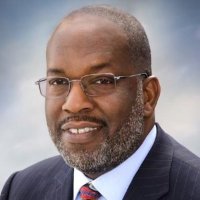Kaiser Permanente is leading the pack in technology and health care initiatives. Kaiser Permanente uses technology to increase consumer engagement and improve health outcomes. Click the Forward arrow to read what leaders at Kaiser Permanente have said about technology and health care.

(LinkedIn, 2017)
Bernard J. Tyson
Chairman and CEO of Kaiser Foundation Health Plan, Inc. and Hospitals
The age of mobile has arrived…People are connected to the Web wherever they are and whenever they want information. They are using their mobile devices to manage their workload and family calendars, pay their bills, and find the nearest Starbucks. It doesn’t stop there.
Mobile technology and the demand for instant information are also changing how consumers engage with their health care providers.
I have often said that the future of health care is dependent on providers’ ability to live up to three major commitments: care must be high quality, care must be accessible, and care must be affordable.
Connected care is all three, and technology is helping us get there.

(Kaiser Permanente International, 2017)
Jamie Ferguson
Vice President, Health Information Technology Strategy, and Policy Fellow, Institute for Health Policy
Mobile apps and wearable devices empower individuals to manage their health and wellness.
Big data analytics harness individual information for public health, safety and research, while remote monitoring devices, telemedicine, electronic health records and interoperability enable the right care, anywhere.
All of this technology and data ultimately result in low-cost wellness and high-value healthcare.

(LinkedIn, 2017)
Dan Weberg
Director of Nursing Innovation in KP's Innovation and Advanced Technology Department
I think as an institution we need to keep thinking about how we evolve our roles, what are the things we need to do differently.
The technology is coming whether we want it or not, so it’s about continuing to imagine how specific roles might change and coming up with strategies to train our workforce to be able to evolve with the technology.

Jessica Butz
National Workforce Planning & Development Coordinator, BHMT Co-Director Coalition of Unions
Changes in health care mean there will be job losses and job growth. But in the long run, the new skills needed are good for workers and for our patients and members. We have options and support to make the transition work for us, and we’ll have better, more secure jobs.
“Together we can move health care — and Kaiser Permanente — into the future, and we can
leverage our great people using technology to continue setting the bar on quality and service.”
– Bernard J. Tyson, Chairman and CEO of Kaiser Foundation Health Plan, Inc. and Hospitals
References
Kaiser Permanente International. (2017). Ferguson_Jaime [Image]. Retrieved from https://international.kaiserpermanente.org/wp-content/uploads/2016/04/Ferguson_Jamie.jpg
LinkedIn. (2017). Bernard J. Tyson [Image]. Retrieved from https://www.linkedin.com/in/bernardjtyson
LinkedIn. (2017). Dan Weberg [Image]. Retrieved from https://www.linkedin.com/in/dan-weberg-phd-rn-6195894